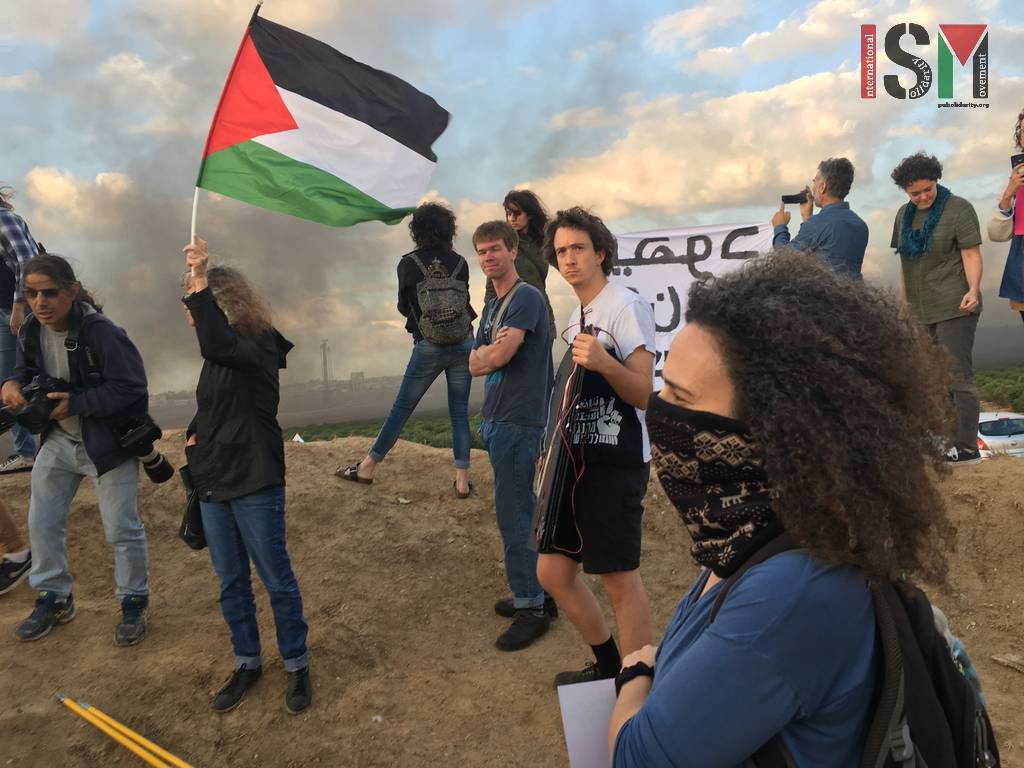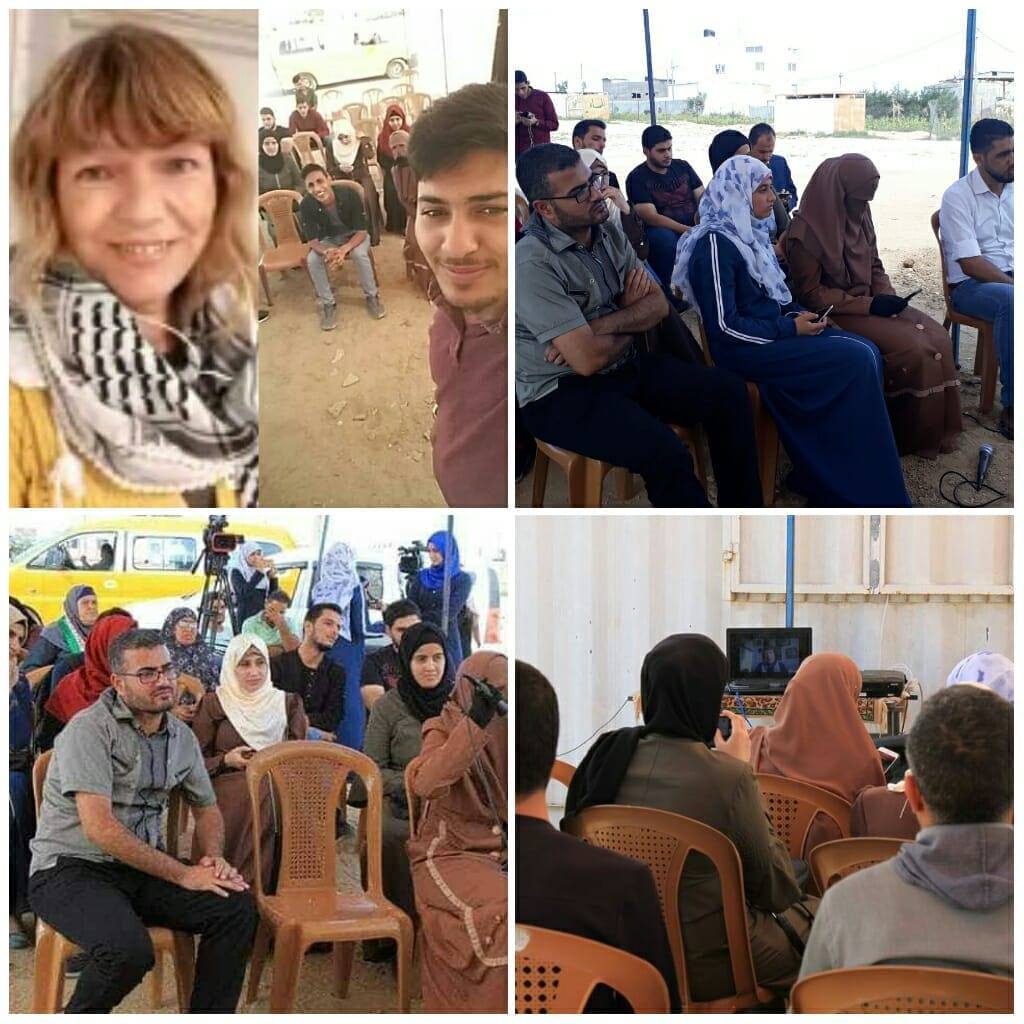Category: Gaza
-
8th anniversary of the death of Vittorio Arrigoni
16th April 2019 | International Solidarity Movement, al-Khalil team | Gaza, occupied Palestine This week marks the 8th anniversary of the death of Vittorio Arrigoni, a journalist and an italian activist working with the International Solidarity Movement in Gaza. On April 16th 2011, when Arrigoni was 36 years old, his body was found in Gaza…
-
2 realities
29st October 2018 | International Solidarity Movement, Ramallah Team | Gaza, occupied Palestine Last Friday, nearly fifty Israeli and ISM protestors demonstrated at the Gaza Border in solidarity with nearly 15,000 Gaza protestors heading toward the border. This action was in conjunction with the weekly Right of Return March. As the activists were confronted by…
-
Israeli and International Activists Join Gazan Protestors in the Great Return March
October 10 2018 | Wafa Aludini, International Solidarity Movement | Gaza, occupied Palestine On the morning of October 10, 2018, ten activists from around the world delivered messages of support to the Great March of Return in the Eastern Gaza Strip via Skype, as a part of a ‘virtual rally’ entitled “Words Over Walls.” The…



